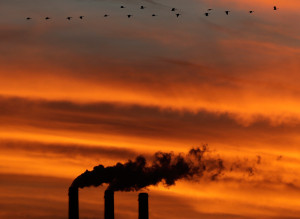The Cuomo administration is sticking by its decision to ban hydrofracking in New York despite a federal report Thursday that found it caused no “widespread” water contamination.
A spokesman for the state’s Department of Environmental Conservation said New York’s decision not to allow the controversial natural gas drilling process was based on factors beyond possible water contamination.
Cuomo administration keeping fracking ban in New York
Fracking could contaminate drinking water: U.S. EPA
Fracking for shale oil and gas has not led to widespread pollution of drinking water, a U.S. Environmental Protection Agency draft report said on Thursday, although it warned some drilling activities could potentially cause health risks.
The study, requested by Congress and five years in the making, said fracking could contaminate drinking water under certain conditions, such as when fluids used in the process leaked into the water table.
Mount Everest's Glaciers Could Lose Up To 99 Percent Of Ice By 2100 Due To Greenhouse Gas Emissions
 Researchers estimated that if greenhouse gas emissions continue to rise at the current rate, the glaciers in the Everest mountain region could lose over 70 percent of their volume by the year 2100.
Researchers estimated that if greenhouse gas emissions continue to rise at the current rate, the glaciers in the Everest mountain region could lose over 70 percent of their volume by the year 2100.
The study warns the famous mountains are extremely sensitive to climate warming, and major ice loss should be anticipated throughout the 21st century, the European Geosciences Union reported.
‘Disaster after disaster’ hits Marshall Islands as climate change kicks in
 The atolls of the Marshall Islands are narrow and practically level with the sea, leaving their 68,000 residents nowhere to move to as a rising sea and increasingly frequent floods threatens to swamp the country. Unlike in many parts of the world where climate change often seems a distant threat, for the Marshallese it is already a daily reality.
The atolls of the Marshall Islands are narrow and practically level with the sea, leaving their 68,000 residents nowhere to move to as a rising sea and increasingly frequent floods threatens to swamp the country. Unlike in many parts of the world where climate change often seems a distant threat, for the Marshallese it is already a daily reality.
Keslynna’s grandmother, Rusina Rusin, said the land has been in her family for too many generations to count, passed down from mother to daughter in the country’s matrilineal social system. She said she has noticed the increasing unpredictability of the weather.
Antarctic Ice Shelf Is A Few Years From Disintegration: NASA
The last intact section of one of Antarctica's mammoth ice shelves is weakening fast and will likely disintegrate completely in the next few years, contributing further to rising sea levels, according to a NASA study released on Thursday.
The research focused on a remnant of the so-called Larsen B Ice Shelf, which has existed for at least 10,000 years but partially collapsed in 2002. What is left covers about 625 square miles (1,600 square km), about half the size of Rhode Island.
Global Carbon Dioxide Levels Topped 400 PPM Throughout March In Unprecedented Milestone
 Average global levels of carbon dioxide stayed above 400 parts per million, or ppm, through all of March 2015 -- the first time that has happened for an entire month since record keeping first began, according to data released this week by the National Oceanic and Atmospheric Administration (NOAA).
Average global levels of carbon dioxide stayed above 400 parts per million, or ppm, through all of March 2015 -- the first time that has happened for an entire month since record keeping first began, according to data released this week by the National Oceanic and Atmospheric Administration (NOAA).
Scientists with NOAA's Earth System Research Laboratory have called the news a "significant milestone" in the growing scourge of man-made climate change.
Wildlife decline may lead to 'empty landscape'
 Populations of some of the world's largest wild animals are dwindling, raising the threat of an "empty landscape", say scientists.
Populations of some of the world's largest wild animals are dwindling, raising the threat of an "empty landscape", say scientists.
About 60% of giant herbivores - plant-eaters - including rhinos, elephants and gorillas, are at risk of extinction, according to research.
Analysis of 74 herbivore species, published in Science Advances, blamed poaching and habitat loss.
A previous study of large carnivores showed similar declines.
More Articles...
Page 30 of 201

 Environmental Glance
Environmental Glance






























